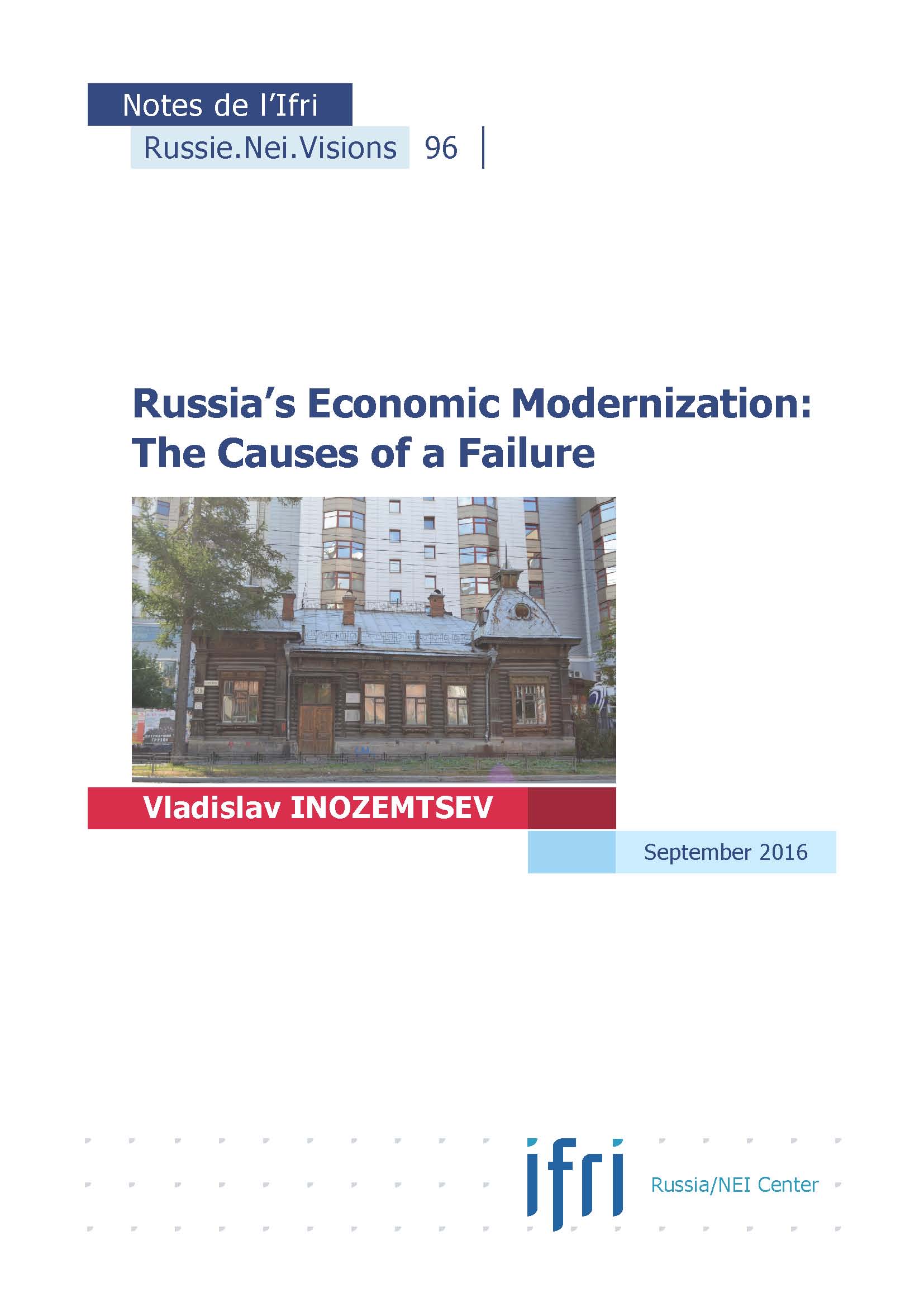Russia's Economic Modernization: The Causes of a Failure

In this short study of attempts that have been made in recent years to modernize the Russian economy, the author explains why they have all ended in failure. Unlike most experts, he focuses on politics and ideology.

He stresses that the idea of modernization runs counter to the historical vision that is now propagated by the Russian leadership, to the system of governance that it has chosen and to Russia’s current path of isolation from the West. In his view, such political choices have rendered modernization of the Russian economy unfeasible. The author also points to other problems: the effects of privatisation, which have made investment in new industrial facilities unprofitable, the declining quality of business leaders who are chosen for their political loyalty and the lack of independent big businesses that could insist on reforms being carried out.
Vladislav Inozemtsev is a Russian economist, Doctor of economic science and the founder and director of the Centre for the Study of Post-industrial Society (founded 1996). Between 2002 and 2012, he was Editor-in-Chief of the journals Svobodnaia Mysl and Russia in Global Affairs, as well as of the Russian version of Le Monde diplomatique. A professor at Moscow State University (MGU) and the Higher School of Economics, he is a non-resident Senior Fellow at the Institute for Human Sciences in Vienna and at the Center for Strategic and International Studies in Washington.
Download the full analysis
This page contains only a summary of our work. If you would like to have access to all the information from our research on the subject, you can download the full version in PDF format.
Russia's Economic Modernization: The Causes of a Failure
Related centers and programs
Discover our other research centers and programsFind out more
Discover all our analysesDeathonomics: The Social, Political, and Economic Costs of War in Russia
The report attempts to outline and examine a truly new phenomenon in Russian society, dubbed “deathonomics”—the making of a mercenary army against the backdrop of the Kremlin’s war in Ukraine, eventually replacing both the Soviet (conscript) and early new Russian (contract) armies. It notes that, by the end of 2023, this trend had turned the military service into one of the highest-paying professions in the country, something not seen in Russia on such a scale since the late 17th century.
Russia's Asia Strategy: Bolstering the Eagle's Eastern Wing
Among Russia’s strategic priorities, Asia traditionally played a secondary role compared to the West. In the mid-1990s, then Foreign Minister Yevgeny Primakov initiated a rapprochement with China and India. Then, in 2014, deteriorating relations between Russia and the West prompted Moscow to begin its “great pivot to the East”.
Kazakhstan After the Double Shock of 2022: Political, Economic and Military Consequences
The year 2022 represented a dual shock for Kazakhstan. In January, the country faced its most severe political crisis since independence, followed in February by Russia’s full-scale invasion of Ukraine, which cast uncertainty over the borders of post-Soviet states. These consecutive crises profoundly shaped Kazakhstan’s domestic and foreign policy.

How the Russian Army Changed its Concept of War, 1993-2022
The traditional and high-intensity war that has occurred in Ukraine since Russia decided to invade raises a key issue: did post-soviet Russian strategic thought really prepare Russia for waging this war?










